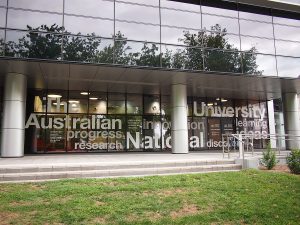The Australian government has now passed world leading legislation around the oversight of foreign relations. The legislation is important enough to be one of the 14 grievances raised in a letter leaked by the Chinese government. For the first time, existing constitutional powers will be exercised to review and audit agreements between states, territories, local councils, and public universities and foreign governments.
The review comes at a time when Australian universities face significant pressures around international student numbers and lack of access to emergency coronavirus relief programs, such as JobKeeper.
Much of the debate has focused on university agreements with China’s defense oriented universities and the Victorian agreement with China on the Belt and Road Initiative (BRI). However, the problem with framing the debate through the lens of specific cases is that it leads to an overly ad hoc approach, focused on a set of agreements that have attracted a range of scandals.
Creating a standard for such agreements, building a capability to review them, and supporting institutions to build productive relationships that don’t harm the national interest must remain the primary aim. It is certainly the case that these institutions do not seem to be adequately able to manage these engagements themselves.
Initial investigations by the Department of Foreign Affairs and Trade (DFAT), the lead auditor, will likely focus on egregious cases. Institutions such as Confucius Institutes will soon be the center stage of the Australian discussion around foreign influence and university partnerships.
It will not simply be sufficient to cancel programs and partnerships, however. Removing the Confucius Institutes may be a positive step in terms of confronting Chinese government influence on campus, but the language training on offer there is highly valuable and much needed. Along with this, Australia faces an already disjointed university and education landscape going into 2021. At present, the toxicity of the environment cannot be understated, with major thinkers critiquing one another on the basis of competence in major platforms on a regular basis.
At present, most of the institutions within Australian academia favor international relationships with China that are representative of past approaches, while the policymaking community has moved on. This has led to centers such as China in the World (CIW) at the Australian National University (ANU) declining to the point of irrelevance. Its main product as of December 2020 is a blog, which mostly critiques the Australian government while feeding quotes to state media in Beijing. The institution and its sister at the University of Technology Sydney have also been mostly silent on several high profile cases of Chinese influence operations, such as those targeting Drew Pavlou and Anne-Marie Brady. The reality is that, as policy is being made in Canberra, academic institutions are both untrusted and left to fend for themselves. Accordingly, they have dug in around highly specific ideas and views of engagement while leaving the majority of the public thinking to Parliament and other actors.
On the other side of the landscape in Australia sits the Australian Strategic Policy Institute (ASPI). ANU and UTS staff regularly criticize ASPI research, and defunding it has become an article of faith of the Chinese government. The funding of ASPI is also one of the 14 grievances leaked by the Chinese government. In spite of pressure from China, ASPI has been highly successful in attracting grants and support. Its cyber practice is now one of the largest in the world.
Going forward, the current institutional separation will need to be healed. There are three main pathways forward for the Australian government, which will be keen to protect the national interest while also not unnecessarily making the relationship with China worse.
The first option would be to invest in language programs within universities. Many universities are presently cutting programs in this vital area. This would likely redirect public finances away from institutions like CIW and UTS, defunding ideas that mostly receive little traction within either major party in the Australian policy environment. A second option would be to enlarge ASPI, creating a language stream within the think tank. ASPI has a winning culture and its ideas have been widely adopted, particularly on Huawei. However, this would likely be seen as replacing the Confucius Institutes with ASPI, which receives funding from the United States government. While this has been talked about in Australian government, it would be a strong negative signal to China.
The third option would be to refresh the central China thought and language institutions within the Australian academic landscape. The level of Balkanization of thought between places such as ANU and ASPI is highly toxic. Building a “broad church” approach to China thought is warranted at this point. China skeptics and human rights-oriented academics would find a home here, along with those more critical of the Australian government. The institution would then also host language training programs, focused on building up the capabilities of the Australian government and agencies. A central figure, from the mainstream of Canberra defense and foreign policy, would then be needed to steward the institution.
This would solve three major problems. First, China needs to become accustomed to human rights critiques coming from Australian universities. Presently, universities underservice this area of the discussion. Second, Australia needs to replace its collapsing language studies programs – a situation that will be made worse by shuttering Confucius Institutes. Third, Australia needs to move the university system closer to the Australian policy mainstream. While in the past decade, accessing markets was the order of the day, sustaining a robust dialogue of both engagement and accountability with an increasingly belligerent China will be the primary challenge of institutions in this one. Presently Australian universities are unprepared to meet this challenge, but we have a strategic opportunity to fix this going forward.
Robert Potter is a fellow at the Centre for Rule-Making Strategies in Tokyo and the CEO of Internet 2.0. Prior to this he was a ministerial advisor in the Australian Government. He was also a visiting scholar at Columbia University.
































